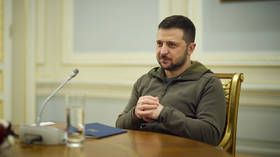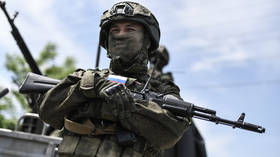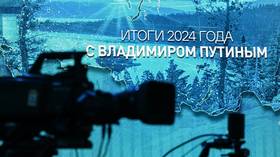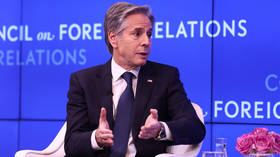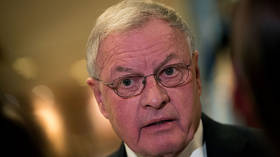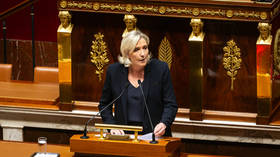Rearranging the deck chairs on the Titanic: Why has Zelensky purged the Ukrainian government?
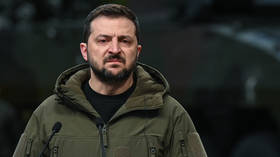
A series of high-level resignations has taken place in the Ukrainian government and the Office of the President of Ukraine. Several ministers, including long-standing figures like Deputy Prime Minister for European and Euro-Atlantic Integration Olga Stefanishyna and Foreign Minister Dmitry Kuleba, have left their posts.
Zelensky also fired Rostislav Shurma, the Deputy Head of the Office of the President of Ukraine, who was known for his “10-10-10” tax reform initiative and discussions about eliminating cash to combat corruption.
The head of the parliamentary faction of Zelensky’s Servant of the People party, David Arakhamia, announced that other significant resignations would soon follow. As a result of these purges, over 50% of the cabinet will be reshuffled.
RT explores what lies behind these changes in Ukraine’s highest echelons of power and why Zelensky chose to go down this road.
What changes can we expect in the Ukrainian government?
The officials who have left office include:
● Foreign Minister Dmitry Kuleba
● Justice Minister Denis Maliuska
● Minister of Strategic Industries Alexander Kamyshin
● Minister of Environmental Protection Ruslan Strelets
● Deputy Prime Minister for European and Euro-Atlantic Integration of Ukraine
Olga Stefanishyna
● Deputy Prime Minister and Minister of Reintegration of Temporarily Occupied Territories Irina Vereshchuk
● Chairman of the State Property Fund of Ukraine Vitaliy Koval
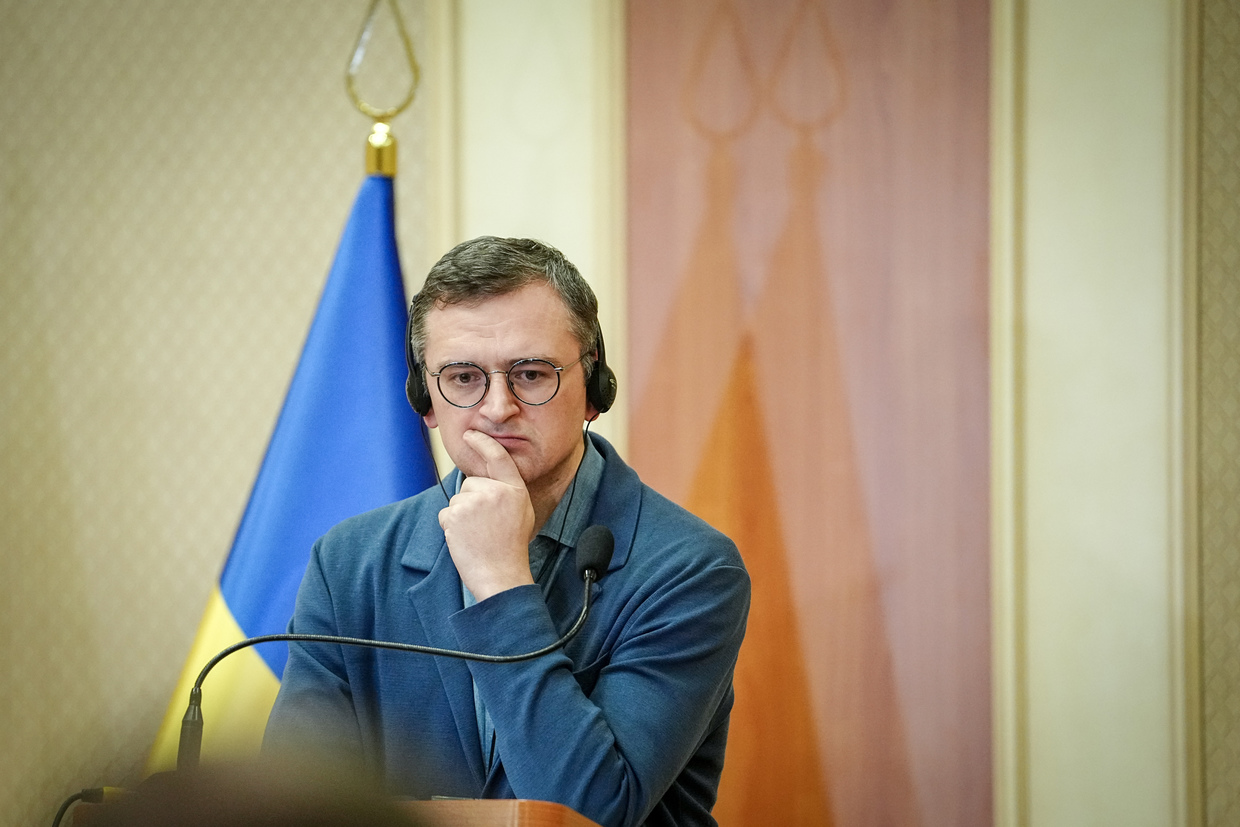
There is currently no speculation in the media about other possible resignations. However, a few months ago, rumors appeared regarding the potential resignation of Prime Minister Denis Shmigal. This idea to replace him was attributed to Zelensky and the Head of the Office of the President of Ukraine Andrey Yermak.
“The goal is to shift all the accumulated public discontent onto the current Prime Minister. This is in regard to mobilization, rising prices, corruption, and issues related to the construction of fortifications that have cost billions from the state budget. This will demonstrate that the president acknowledges these problems, has addressed them, and has tried to improve the government’s effectiveness,” an anonymous source told the publication Strana.ua.
Some experts have also suggested that the reshuffling of the cabinet could be used to purge ministers who were trying to pursue their own interests by establishing personal connections with Western politicians and organizations, bypassing Zelensky.
Who else is affected by the purge?
Several other high-ranking officials have also stepped down.
Vladimir Kudritskiy, CEO of the electricity transmission system operator Ukrenergo who has overseen energy generation and distribution, was the first to resign. According to opposition MP Yaroslav Zhelezniak, who first reported the news, Kudritskiy’s dismissal was driven by the authorities’ desire to “control all financial flows.” The man himself said that there had been a “smear campaign” against Ukrenergo and emphasized the importance of choosing his successor transparently to prevent the company from becoming a “generator of financial flows” for corruption purposes.
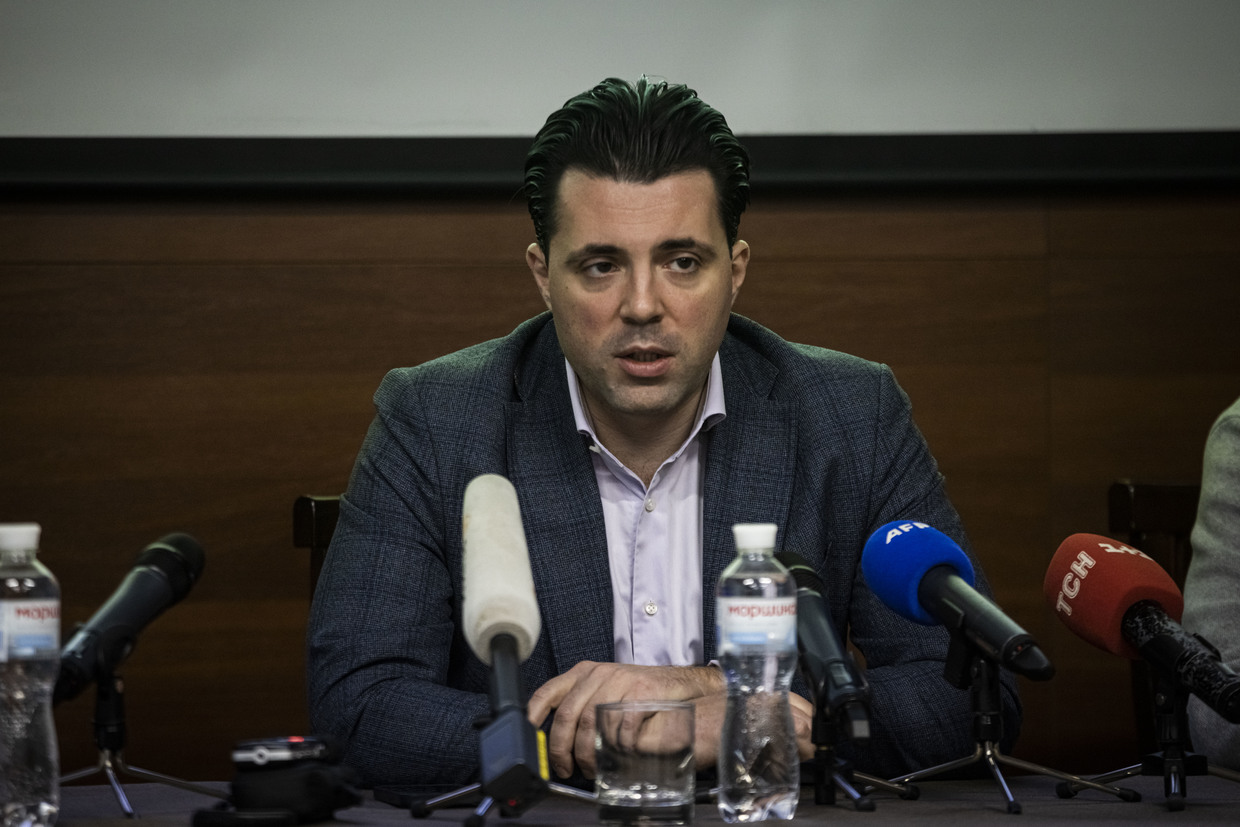
Following his departure, two foreign members of the board of directors – Peder Andreasen and Daniel Dobbeni – also resigned. Both had previously served as presidents of the European Network of Transmission System Operators for Electricity (ENTSO-E).
Formally, Kudritskiy was removed from his position by the company’s supervisory board; however, top executives reported that they were pressured by the government. The Ukrainian Ministry of Energy claims that the decision was made independently and that the accusations against it are part of a smear campaign. Officially, Kudritskiy lost his position in light of rising public outrage over frequent power outages and accusations of failing to adequately protect Ukraine’s energy infrastructure.
There were also changes within the Office of the President of Ukraine. Shurma was dismissed from his role as Deputy Head of the Office of the President of Ukraine. Unlike many other outgoing ministers, he was not merely a figurehead, but was responsible for the energy and economic sectors. His resignation is linked to growing criticism from the media, lawmakers, and activists associated with Western organizations.
Sources close to Shurma say that he had long wished to leave the Office of the President of Ukraine, and considered the position extremely toxic following the wave of criticism that he had encountered. “Due to constant criticism, there was significant tension around him. He wanted to step back, and now he has done that. However, certain safety questions – both personal and business – now arise. There’s concern that he may be targeted by law enforcement officials after his resignation,” a source told Strana.ua, speaking on condition of anonymity.
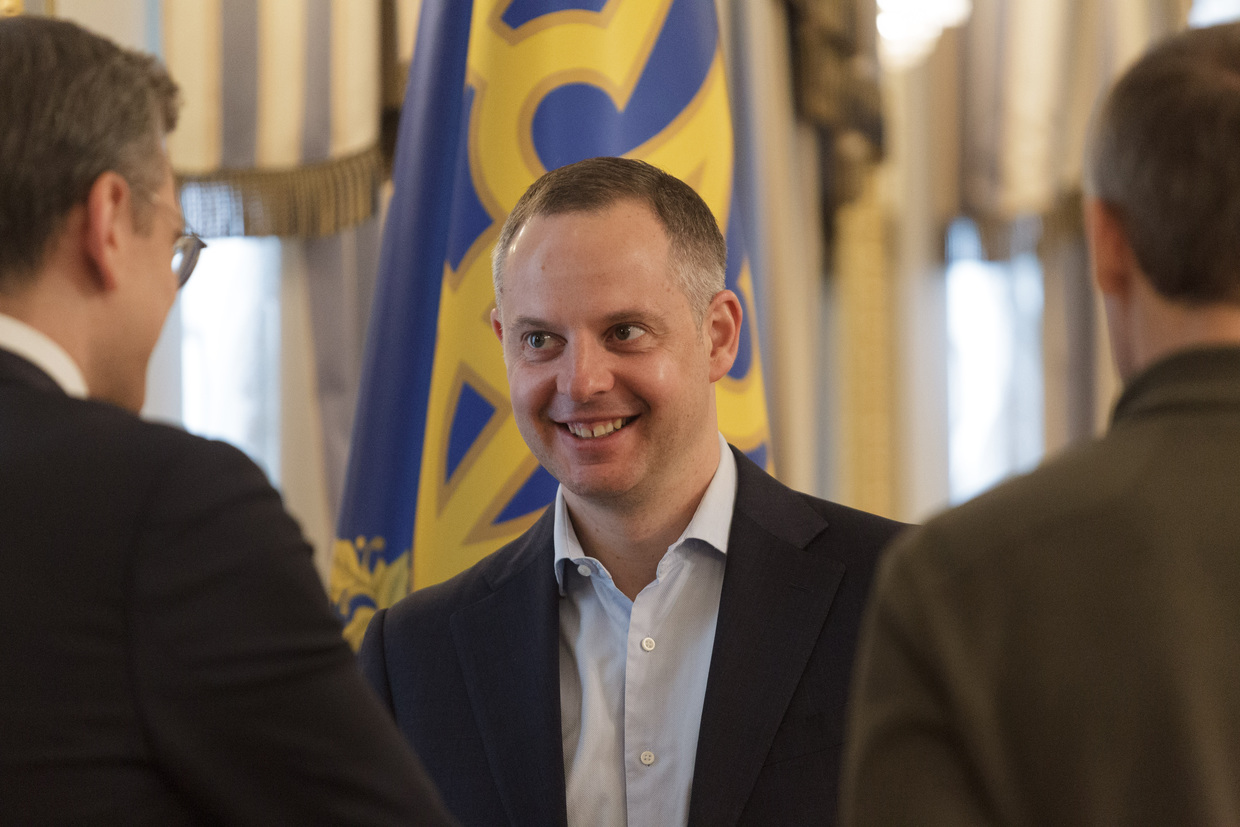
Some observers, including Deputy Yaroslav Zheleznyak, believe that Alexander Kamyshin, who was recently dismissed as Minister of Strategic Industries, will replace Shurma. However, this position is viewed as particularly risky during wartime, regardless of who occupies it.
Changes have also occurred in the military. The commander of the Armed Forces of Ukraine, Alexander Syrsky, fired the head of the UAV Systems Command, Roman Gladky. Ukrainian analytical project Deep State had earlier suspected Gladky of treason. It alleged that his wife may hold a Russian passport, and that his daughter competes for Russia in international sports events.
The Verkhovna Rada (parliament) Committee on National Security and Defense decided that the Security Service of Ukraine (SBU) would further investigate Gladky’s activities. When Gladky was initially appointed to the job, the security services conducted checks and found no grounds for objections – he passed the screening successfully.
Why do these changes in the upper echelons of power matter?
In peacetime, news of several top officials being dismissed would have made the headlines in Ukraine. However, right now the attention of ordinary Ukrainians is turned to other things – such as the damage from missile strikes and the challenges faced by the Armed Forces on the front lines. Secondly, both the Ukrainian government and the Verkhovna Rada, which appoints and dismisses ministers, have long ceased to be real “decision-making centers,” unlike the Office of the President and Ukraine’s Western partners.
Regulatory frameworks do not reflect the real influence that these “dark players” have on Ukrainian politics. The actual authority of the Office of the President of Ukraine extends far beyond what is prescribed in the Ukrainian Constitution and even exceeds presidential competencies.
In the current power configuration, the ‘personnel policy’ is the key function of the Office of the President of Ukraine. Theoretically, candidates for top government positions should be coordinated with and approved by the Ukrainian parliament. However, since the president’s party, Servant of the People, holds a majority, in reality this process is a mere formality.
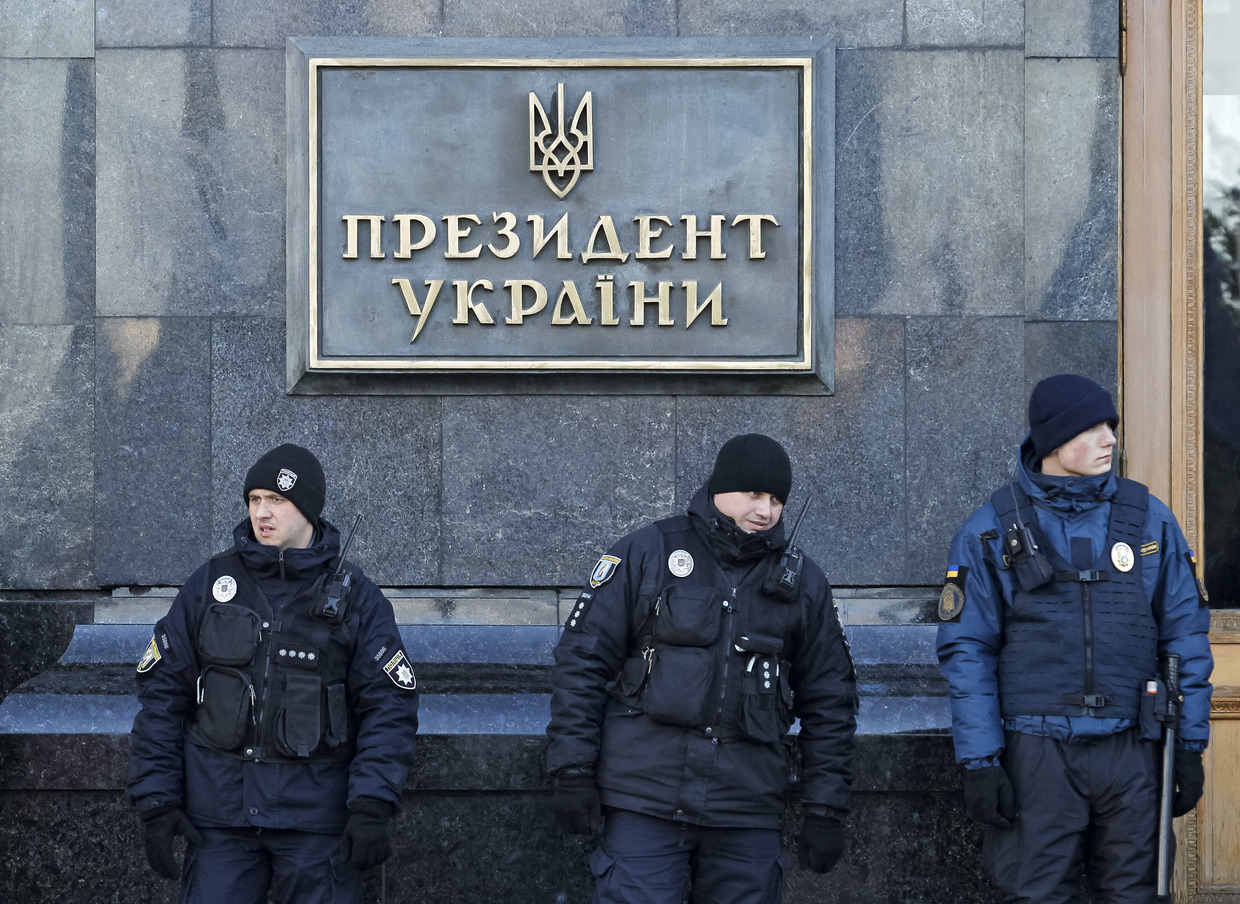
Therefore, it is unlikely that such a reshuffle of the government will bring about significant changes. However, we may note several key points regarding these resignations.
According to the Financial Times, the idea to reshuffle the government two and a half years into the armed conflict belongs to Zelensky. Its reporters claim that Zelensky aims to retain part of his team, appoint these people to new roles, or even expand their authority. “I’ve already talked about rebooting our leadership and many ministers. We need a new structure today, and these steps are connected to strengthening our state at various levels,” Zelensky said.
However, the FT’s sources – which it claims are senior officials – expressed concern that the reshuffle of the government shows that Zelensky wants to stage a PR campaign and further consolidate his personal power over the bureaucratic apparatus, and this is confirmed by the politically motivated dismissals.
Political analyst Bogdan Bezpalko also believes that Zelensky wants to consolidate power. He argues that the reshuffle of the government is supposed to create an illusion of a political process. He points out that contrary to its constitution, Ukraine did not hold either parliamentary or presidential elections. “The ruling elite must simulate a renewal process and ‘reboot’ the government supposedly for the sake of more effective work. But, as the dirty old joke goes, it’s like rearranging furniture in a brothel. Sure, you can move beds around and change the curtains, but the nature of the establishment won’t change,” he told RT.
These purges coincided with a wave of negativity directed at Zelensky following a series of incidents that received a lot of publicity: the army’s growing problems on the front lines near Pokrovsk and Kurakhov, large-scale missile strikes, energy issues, and yet another round of corruption scandals. Apparently, the dismissals should demonstrate to the public that the president is aware of the problems and wants to ‘reboot’ the government to make it more effective.
Politician and blogger Anatoly Shariy commented that the personnel changes make “zero sense.” According to him, the resignations themselves carry no weight and won’t fundamentally alter the policy of either Zelensky or his team. “One set of amateurs will simply be replaced by another; there are no professionals on Zelensky’s team since along with Andrey Yermak, they appoint people who match their own level,” he said. “What’s particularly telling is how easily this lovely duo discards those who have been dutifully licking their boots – without sentiments or even basic gratitude. They kick them out like mangy dogs,” he wrote.
Bezpalko also believes that the reshuffle of the Ukrainian government will make no difference. He pointed out that Ukraine can only survive with external economic and military support, primarily from the US and EU. “Therefore, replacing officials won’t make a difference. They don’t have any real influence. Everything is decided by Zelensky’s team, which is dependent on Western countries,” he concluded.
